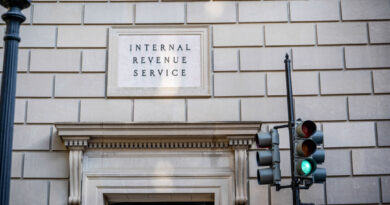McKinsey Agrees to $650 Million Settlement Regarding Involvement in OxyContin Sales
A former senior partner at McKinsey is expected to admit guilt to obstruction of justice.
This agreement allows McKinsey to evade criminal charges, provided they pay the specified amount and adhere to certain stipulations for five years, which include ceasing all activities related to the sale, marketing, or promotion of controlled substances.
The settlement also stipulates that Martin Elling, a former senior partner at McKinsey, will plead guilty to obstruction of justice for deleting documents from his laptop once he learned about ongoing investigations into Purdue Pharma during the time it was a McKinsey client, as stated in the filings.
In light of the settlement, McKinsey expressed regret for its association with Purdue Pharma in a statement to The Associated Press.
Seeking Accountability
This settlement is part of a wider initiative by federal prosecutors to hold corporations accountable for their contributions to the U.S. addiction and overdose crisis, according to a press release issued by the DOJ, Office of Public Affairs on Friday.
“McKinsey collaborated with Purdue Pharma to ‘accelerate’ OxyContin sales during a devastating opioid crisis—one that continues to hurt families and communities nationwide. Today’s unprecedented resolution underscores our commitment to holding influential companies accountable for their roles in the opioid crisis, regardless of whether they manufactured, sold, or distributed the drugs,” remarked U.S. Attorney Joshua Levy for the District of Massachusetts.
“Consulting firms like McKinsey need to understand that if their contributions to boardroom strategies enable criminal activities, we will pursue action against them and bring the facts to light.”
Over the past 15 years, McKinsey has received upwards of $93 million from Purdue for their consulting services, which included strategies aimed at bolstering OxyContin sales. Prosecutors allege McKinsey was aware of the risks tied to OxyContin and Purdue Pharma’s prior legal troubles but chose to proceed with their partnership.
One of McKinsey’s roles, as detailed in the court documents, was allegedly to identify prescribers who would increase their prescriptions if specifically targeted by Purdue’s sales representatives. This approach led to prescriptions that “were not for medically accepted purposes, were unsafe, ineffective, and medically unnecessary, and were frequently redirected for non-medical uses,” according to the filing.
Christopher Kavanaugh, U.S. Attorney for the Western District of Virginia, stressed the tangible consequences of McKinsey’s actions during a press conference in Boston.
“This was not theoretical,” he stated. “This was not merely marketing. It was a strategy that was implemented and proved effective.”
As per the court filing, McKinsey consultants allegedly accompanied Purdue sales representatives on visits to healthcare providers and pharmacies back in 2013, part of a scheme to “boost” Purdue’s sales.
In 2014, McKinsey purportedly identified smaller clinics that prescribed more opioids than complete hospital systems and advised targeting these clinics for increased sales, according to both the court filing and the latest DOJ announcement.
The consulting firm also allegedly worked to sway federal regulations to ensure high-dose OxyContin received the same oversight as their lower-dose counterparts and sought to make training for prescribers optional rather than compulsory, according to government filings.
The recent federal settlement follows other agreements where McKinsey committed approximately $765 million to state and local governments as well as $78 million to healthcare funds and insurance companies for their roles in the opioid crisis.
Purdue Pharma has been subject to other investigations, with three executives pleading guilty to misbranding charges in 2007, followed by the company itself admitting to criminal charges in 2020, which resulted in $8.3 billion in penalties and forfeitures.
This report was contributed by The Associated Press.
From NTD News





